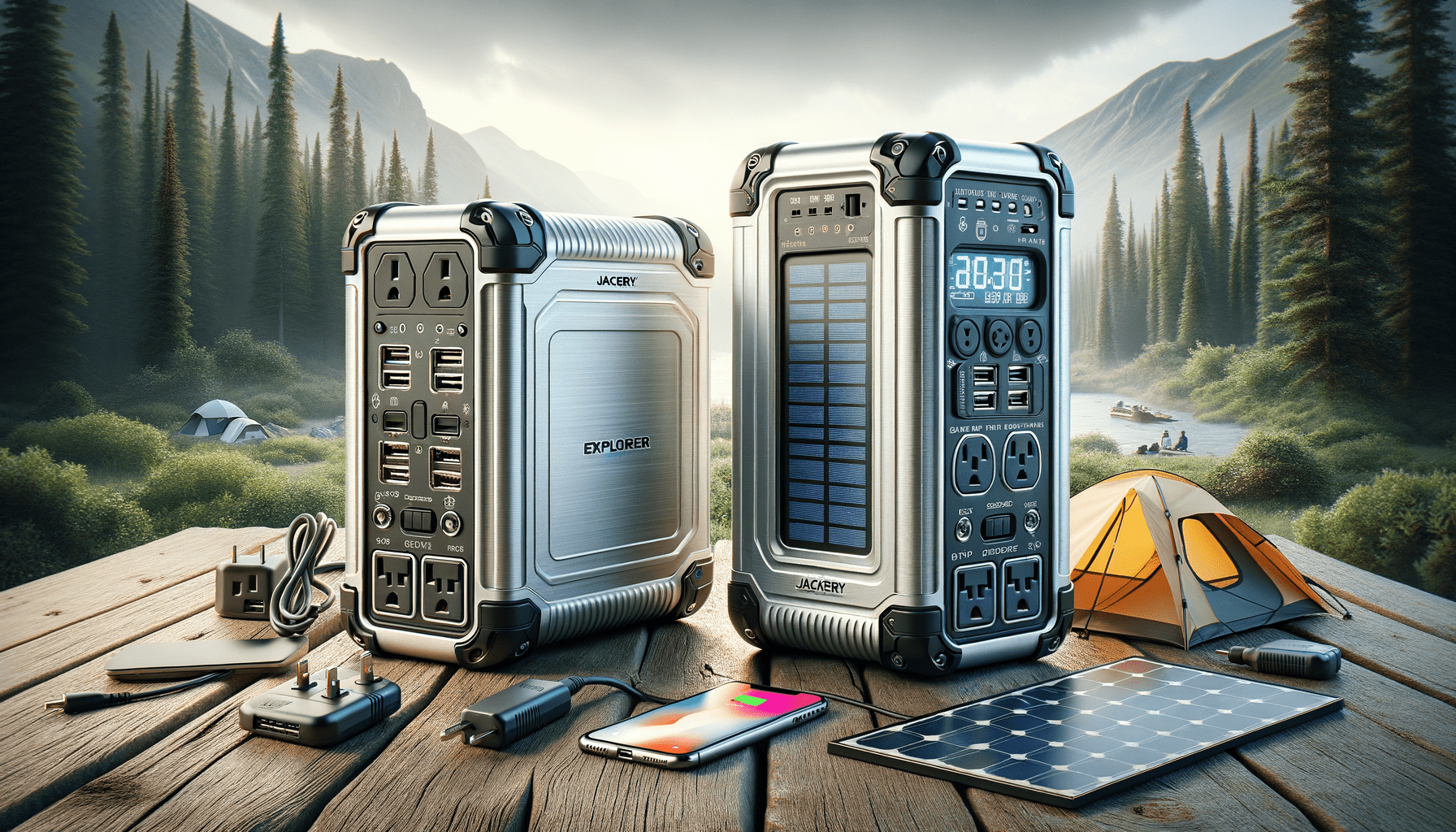When it comes to portable power stations, having reliable and efficient energy on the go is paramount for outdoor enthusiasts and in home backup scenarios. In this head-to-head technical comparison, we’ll dive deep into the features, design, and overall capabilities of two notable products in the market: EcoFlow Delta mini and BougeRV FORT 1000.
Design and Portability
When considering portability, both power stations are designed with transportation in mind. The EcoFlow Delta mini weighs in at 23.6 lb with dimensions of 14.9 × 7.2 × 9.4 in, making it a lightweight option for carrying on camping trips or moving from one location to another. On the other hand, the BougeRV FORT 1000 is slightly heavier at 28.7 lbs and measures 12.6 x 9 x 11.4 inches.

Battery and Capacity
Battery technology and capacity significantly influence a power station’s efficiency and longevity. The EcoFlow Delta mini employs NCM Li-ion battery technology with a capacity of 882Wh, offering up to 800 cycles to 80% capacity. Conversely, the BougeRV FORT 1000 uses a LiFePO4 battery, known for longer life spans, boasting 1120Wh and offering over 3500 cycles up to 80% capacity.
Power and Output
Power output is critical, especially when you need to run high-demand devices. The Delta mini provides a 1400W total AC output across five outlets with a surge capacity of 2100W. At the same time, the FORT 1000 offers slightly higher AC power with a max of 1200W (2000W peak) across three outlets. Both stations are equipped with multiple USB ports, with the Delta mini featuring a powerful 100W USB-C port for fast charging compatible devices.
Charging Methods and Solar Compatibility
Charging flexibility is important for those on the move or using solar panels for a greener approach. The EcoFlow Delta mini supports fast AC charging, car charging, and solar panel input up to 300W. Meanwhile, the BougeRV FORT 1000, with its MPPT technology, champions efficient solar charging, utilizing 12-30V solar panels. Both products promote versatility, though the Delta mini slightly outpaces with its 900W max AC charge input over the FORT 1000’s 200W DC5521 input.
Safety Features
Safety can’t be overlooked when discussing portable power solutions. The EcoFlow Delta mini’s advanced Battery Management System (BMS) protects against typical electrical issues. Similarly, the FORT 1000’s use of LiFePO4 batteries is inherently safer, with a lower risk of thermal runaway.
Additional Features and Smart Technology
Both the EcoFlow Delta mini and BougeRV FORT 1000 offer distinctive features like LED displays for monitoring, though the Delta mini also offers an edge with its mobile app integration for smart control and monitoring. The FORT 1000 excels in its specifically designed feature for car fridges, ensuring they run without interruption.

Final Verdict
Choosing between the EcoFlow Delta mini and the BougeRV FORT 1000 boils down to your specific needs. The Delta mini is ideal for those prioritizing fast recharge times, lightweight portability, and AC output for multiple devices. The FORT 1000 is better suited for users requiring a longer lifecycle, additional safety due to its battery technology, and a design tailored for car fridge compatibility.
| Specification | EcoFlow Delta mini | BougeRV FORT 1000 |
|---|---|---|
| Battery Capacity | 882Wh | 1120Wh |
| Battery Type | NCM Li-ion | LiFePO4 |
| Cycle Life | 800 cycles (80% capacity) | Over 3500 cycles (80% capacity) |
| AC Output | 1400W (2100W surge) | 1200W (2000W peak) |
| AC Charge Input | 900W max | 200W max |
| Solar Input | 300W, 11–75V DC, 10A max | 12-30V, 8A, max 200W |
| USB-C Output | 100W Max | 60W Max |
| Car Charger | 12V/24V DC, 8A default | None specified |
| Weight | 23.6 lb | 28.7 lb |


Leave a Reply